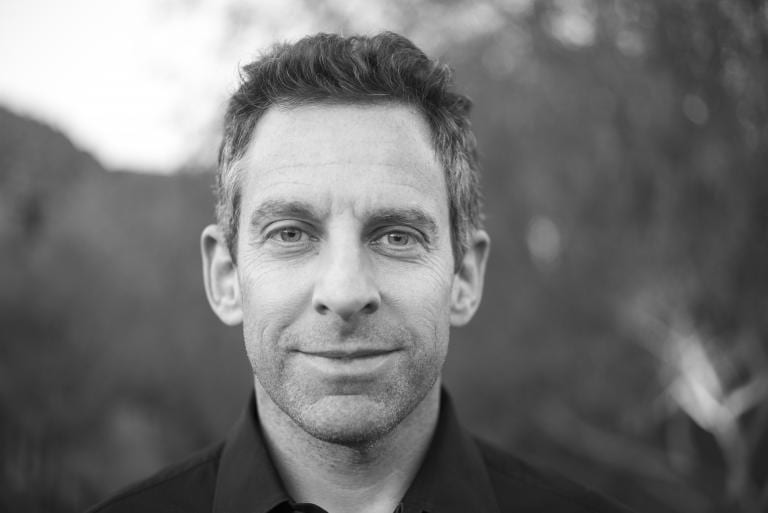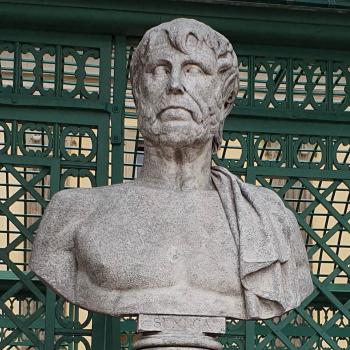
Chances are that you’ve been sitting at home for 4 or 5 weeks now. I know that this is driving some people nuts, they’re going stir crazy and I get it. But if you’re like me, you’re enjoying this enforced down time as it has given you time to explore new books, new podcasts, new ways of thinking.
I recently came across a 5-minute audio clip that forced me to look at life from a fresh perspective. It can be found on the Sam Harris Waking Up meditation app which also includes a number of “lessons.” There’s one that has special resonance during these days of Covid-19 quarantine and it’s called “The Last Time.” It starts like this:
I want you to take a moment to think about all the things in this life that you will experience for the last time. Of course, there will come a day when you die, and then everything will be done for the last time. But long before you die, you will cease to have certain experiences. Experiences that you surely take for granted now.
The subject matter may seem gloomy, but think about this for a moment. Harris asks us, “If you are a parent (or grandparent), when is the last time your child (or grandchild) will sit on your lap as you read them a bedtime story? When is the last time you will tuck her or him into bed?” There is always a last time for events like this, and we never know when it will be.
Given our current social distancing situation, there’s a set of related questions we might ask ourselves today. When will you again go to a live concert? When will you go to a professional sporting event again? When will you again have a meal at your favorite restaurant? Is it possible you’ve done any of these activities for the last time?
The funny thing is we often do things for the last time and it’s beyond our cognitive abilities to realize it. Harris talks about that last time he skied 15 years ago. On that day, when he took off his skis, he “was not even dimly aware of the possibility” it could be the last time he ever skied. Yet now it’s not certain. I can tell an almost identical tale about kayaking and I’m sure you have a similar story.
Of course, when discussing the “last time” concept, we must now also look at the people who have been struck down by Covid-19. Many were healthy one moment and a few weeks or even days later they were dead, with no advance knowledge that their end was near. If they knew a year or even a month ahead of time, would they have lived their lives differently. Would they have been kinder, more loving, less concerned with the mundane worries of everyday life?
It might make sense to follow the lead of Aubrey Marcus who recently cited an ancient stoic wisdom called Memento Mori. Its meaning: Remember you are going to die. This is the only thing certain about our collective futures. And while virtually everyone reading this will survive this Coronavirus, the fact is one day we’re going to die and we don’t know when. Marcus points out, “This makes time our most precious resource. When we take a moment to look at how we spend it, something profound emerges.”
Harris echoes this sentiment, reminding us that “we have no assurance we will be here next year, next week, even tomorrow.” Yet we still often overlook the precious moments of our lives, even things as simple as the family gathering together for dinner at the kitchen or dining room table. So how do we live our lives to their fullest knowing that we may not receive a clear signal that our end is near?
All we can do is be in each moment, right here, right now, starting today.
To paraphrase Harris, “when you know you do everything a finite number of times, it adds a specialness to the moments.” You begin to realize you never know when the “last time” of any activity or event that has special meaning to you will occur. Harris advises us that:
Paying more attention can make everything seem more special. Attention is your true source of wealth, so pay a little more attention.
Let’s look at how that might play out in our own homes now and in the coming weeks. Are there certain daily happenings that you are taking for granted? Do you need to be more in the moment? Can you take the following three actions?
- When you talk with someone, be fully present and really listen.
- Notice small acts like washing the dishes or doing the laundry and respond with gratitude.
- Be patient and kind even when others are not.
In Harris’s words, “Connect with your life.” There’s no better time to do this than now, when our worlds have grown smaller and, in most cases, our ability to connect with those closest to us has never been easier—or more comforting for everyone involved.













